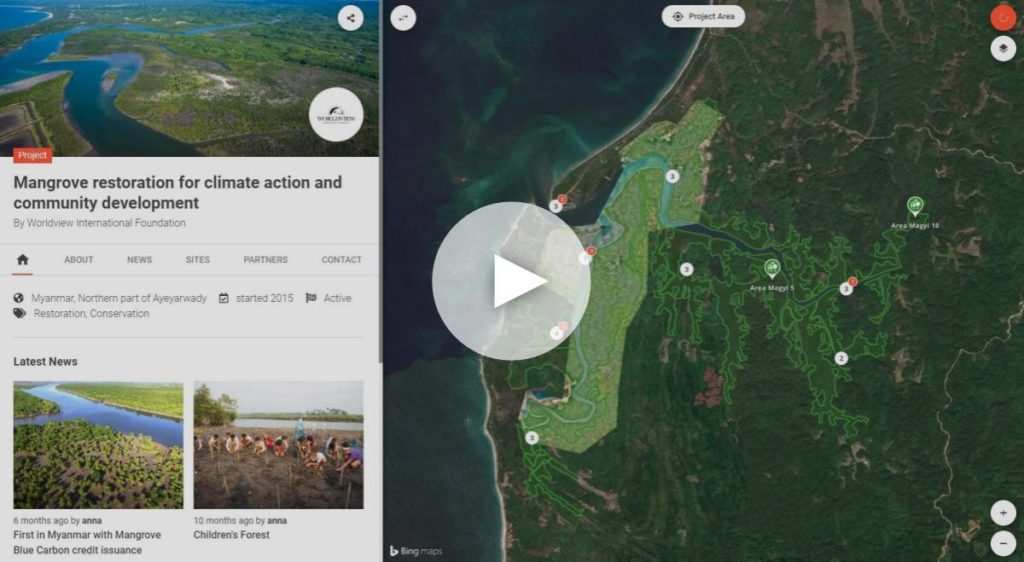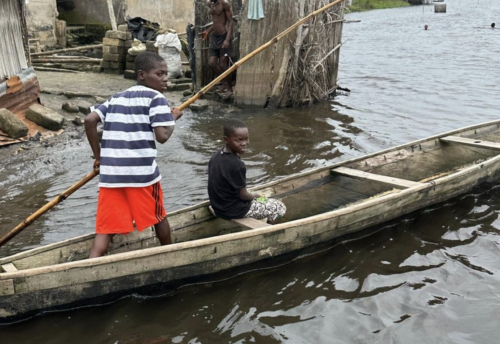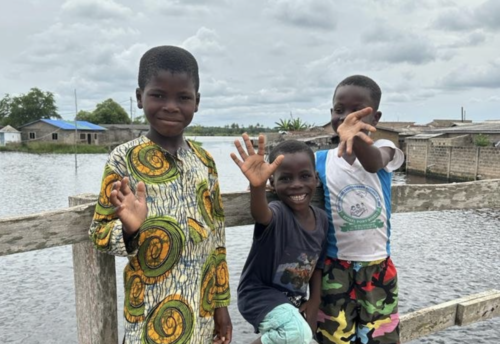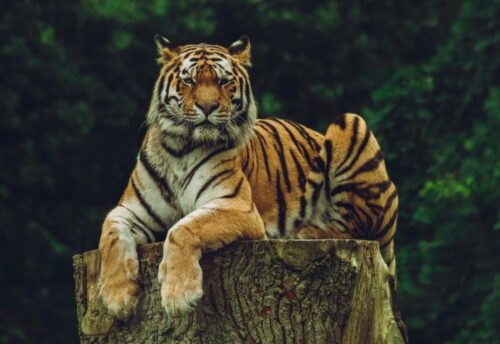
The project is called Thor Heyerdahl Climate Park – in honor of the well-known Norwegian author, scientist, environmentalist and explorer Thor Heyerdahl – to promote awareness and commitment for urgent action on climate change. He was among the first in the world to raise awareness on climate change and campaigned strongly for reduction of greenhouse gases. Heyerdahl was a founding member of our partner Worldview International Foundation (WIF) and served as its Vice President for many years. His son Bjørn Heyerdahl shares his father’s commitment and is engaged in WIF’s mangrove research project in Myanmar in cooperation with leading universities. Both Ecofriend World and WIF are honored to partner with Dr. Sylvia Earle and Mission Blue in this inspiring challenge for a better future. We invite you to join us in restoring mangrove ecosystems to reduce the impact of climate change and protecting human life.
Many people consider the mangrove to be a miracle tree. For human communities that depend on fishing, mangroves serve as nurseries for fish species and the detrital food cycle on which those fish depend for survival. Mangrove forests are the vital foundation for a complex marine food web, sustaining not only fisheries but many forms of bird and other wildlife. In Myanmar it is estimated that 75% of the game fish and 90% of the commercial species in certain areas rely on mangrove systems.
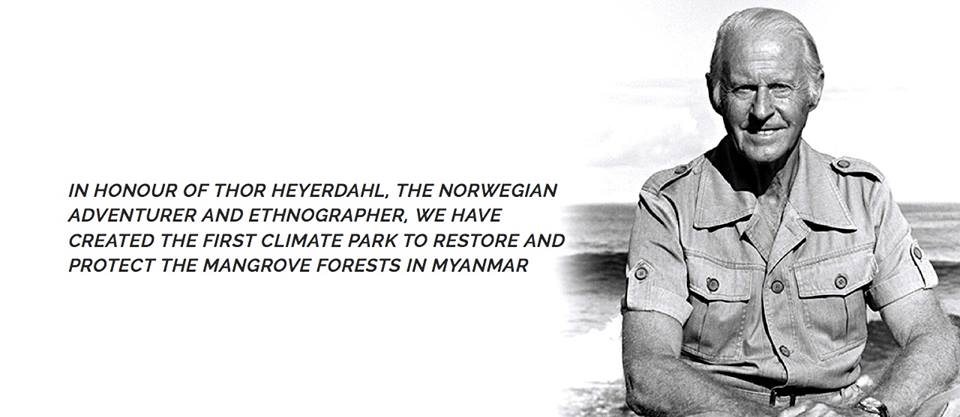
Mangroves also serve as physical coastal barriers that can absorb extreme wave and storm activity and oceanic surges. Without mangroves to protect coastlines from such damage human lives can be imperilled, as occurred in 2008 when Hurricane Nargis hit coastal areas where there was no longer any mangrove protection and thousands of people were killed and displaced.
Mangroves preserve water quality and reduce pollution, filtering suspended material and assimilating dissolved nutrients that would otherwise smother coral reefs. They also provide a substantial cooling effect and have the ability to mitigate up to five times more CO2 than rainforest trees.
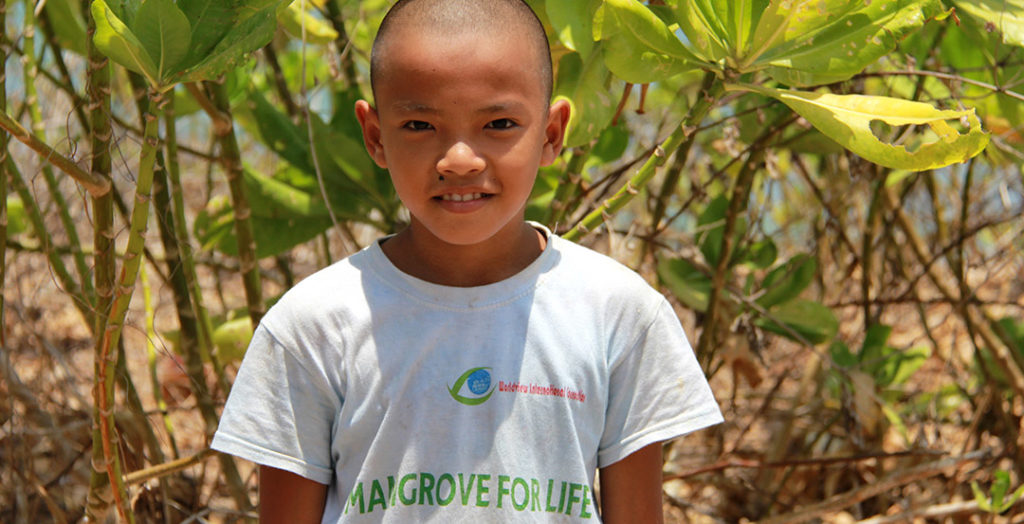
On the other hand, despite these known ecological benefits, mangroves have also become the target of various coastal projects that require the destruction of the mangroves, including the production of charcoal by extremely poor local families who suffer nomadic and unreliable existences. According to a NASA report only 20% of original mangrove cover remains in the vulnerable areas, and absent any intervention, it is projected that most if not all the remaining mangrove cover will be gone by 2030.
To help avert this disastrous ecological outcome, reverse the trend and provide significant economic benefits to coastal communities, Ecofriend World has been working with WIF on implementing an ambitious but viable project which has numerous synergistic components including benefiting women in disadvantaged communities.
Ecofriend World in partnership with WIF is working to establish mangrove parks as the first step in a national restoration of mangroves across Myanmar with the following key benefits:
- Reverse devastating effects of Myanmar’s degraded natural mangrove forests
- Provide up to 50% more seafood with better and secured breeding habitat
- Mitigate up to five times more CO2 than rainforest trees and reduce escalations of global warming
- Generate a cooling effect from planted trees with 60,000 BTUs per tree
- Create high value-added livelihood opportunities to disadvantaged coastal communities by reducing poverty – especially among women – by raising orchids, collecting nipa palm sap and bee honey, and providing other new sources of revenue
- Save lives and improve environmental health for millions of people in adaptation to climate change
- Contribute to social and economic development of a peace building process in a new democracy
Additional components of the mangrove park will include:
- Waterways
- Research facilities
- Observation and education facilities
- Tissue culture lab for mass production of selected plants with high genetic value
- Experimental planting methods and other practical scientific activities
- Buildings for administration, mangrove museum and exhibition
- Demonstration in sustainable forest management for maximum economic benefit
- Livelihood creation in local communities by utilization of nipa mangrove palm
- Recreation/resting facilities and other services for students and visitors
- Gene bank for preservation of all mangrove species
- Nurseries and planting of up to 1.2 million mangrove trees as a national genetic resource with the highest CO2 mitigation and photosynthesis cooling capacity
- Day care centers where needed in involved communities and villages
Our long term goal is to meaningfully engage our Ecofriend World members globally in planting one billion mangrove trees with us and providing green jobs with sustainable livelihoods for millions of poor people living in coastlines and Delta Region of Myanmar. The Thor Heyerdhal Climate Parks which are expanding in different locations aims to mitigate one billion tons of CO2 primarily by maintaining and protecting mangrove forests from human activities that would otherwise release carbon from the ground to our planet’s atmosphere.
